Marine Mammal Programming
What is the Marine Mammal Program?
The waters in and around the Port of Prince Rupert’s jurisdiction sustain diverse populations of whales, porpoises, and dolphins, while also serving as a gateway for global maritime trade. The Port of Prince Rupert’s Marine Mammals Program is based in the understanding that a number of cetacean species are vulnerable to both vessel collisions and noise disturbance resulting from port-related activities. Launched in 2015 with involvement from members of the Port Environmental Stewardship Committee, the Marine Mammal Program is focused on reducing potential impacts to marine mammals. The program is a forum for engagement and collaboration with the various partners to work together through scientific research, information sharing, education, implementation of best management practices and real-time monitoring initiatives.
Mariner’s Guide
The Mariner’s Guide to Whale’s Dolphins and Porpoises of Western Canada was developed to raise awareness and provide information that will help mitigate vessel impacts on cetaceans along the B.C. coast. The Guide is designed to help mariners reduce their risk of striking and killing or seriously injuring a cetacean, and includes location densities and simple measures to greatly reduce the chance of an incident. Information in the guide also addressed minimizing vessel disturbance and vessel noise. Marine mammal identification is included as well as details on reporting sightings. The Guide was developed through a partnership and collaboration between the Port of Prince Rupert, Port of Vancouver, Vancouver Aquarium’s Coastal Ocean Research Institute, and the Department of Fisheries and Oceans. Other partners in the guide include Department of Fisheries and Oceans, BC Ferries, BC Chamber of Shipping, Pacific Pilotage Authority, BC Coast Pilots, Shipping Federation of Canada, and Cruise Lines International Association.
View the Mariner’s Guide to Whale’s Dolphins and Porpoises of Western Canada [PDF].
Relative Abundance of Marine Mammals Along the Approach to Prince Rupert
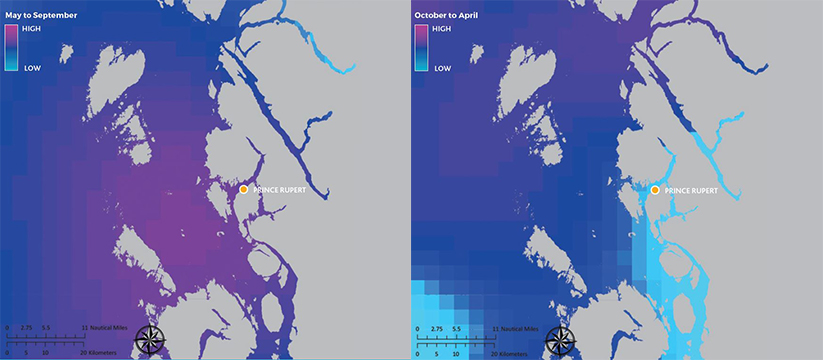
Strategies For Reducing the Impact of Large Vessels on Marine Mammal Populations
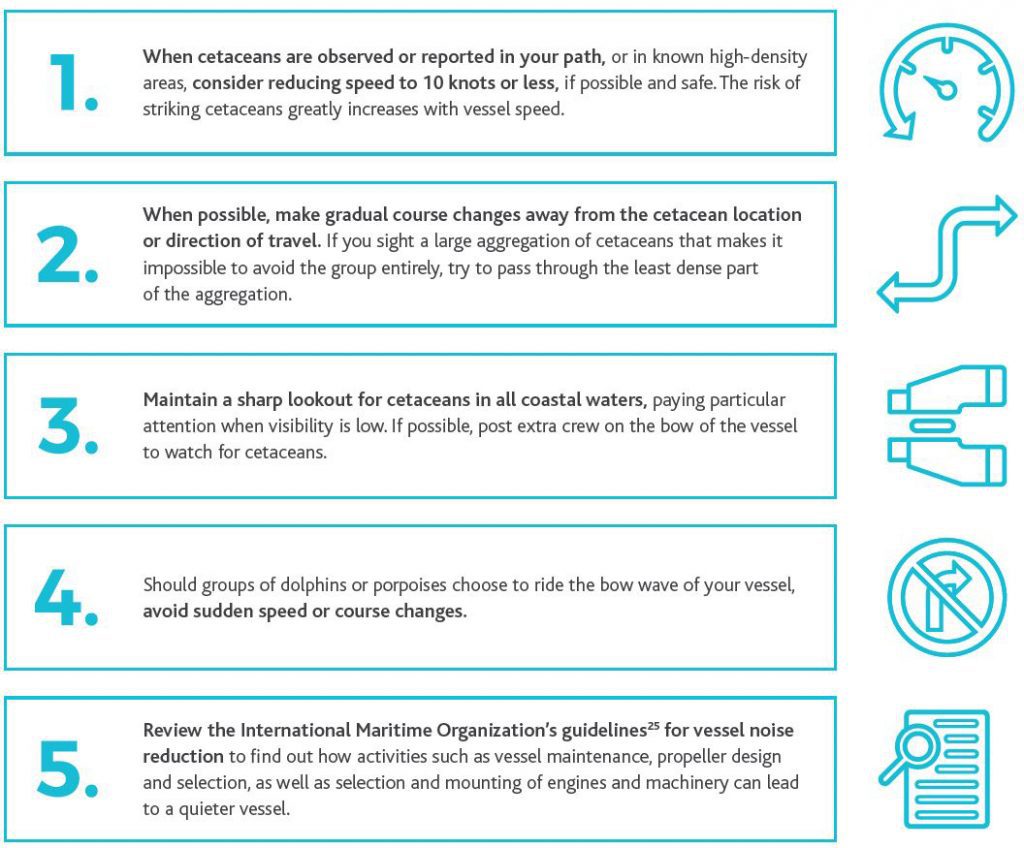
Reporting Marine Mammal Sightings
The Port of Prince Rupert is supporting the collection of cetacean sighting data. Port vessel crew and staff submit data to the BC Cetacean Sighting Network. Other port users are also supplying valuable data. A new app, WhaleReport, was released in 2016 making it easier to report sighting data. Information on reporting sightings and marine mammals in distress outlined below.
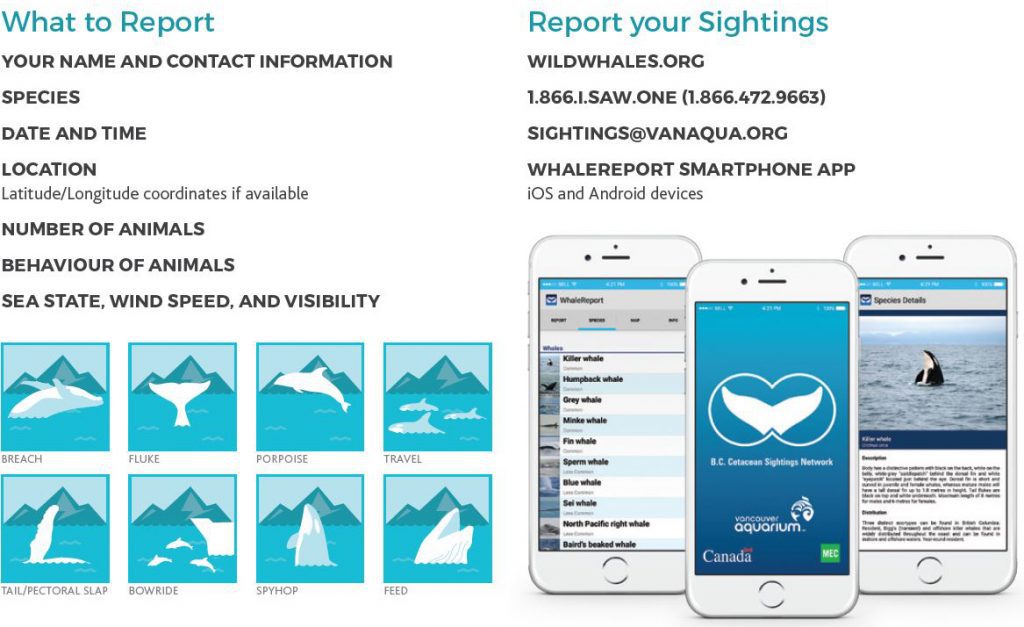
Reporting Vessel Strikes and Marine Mammals In Distress
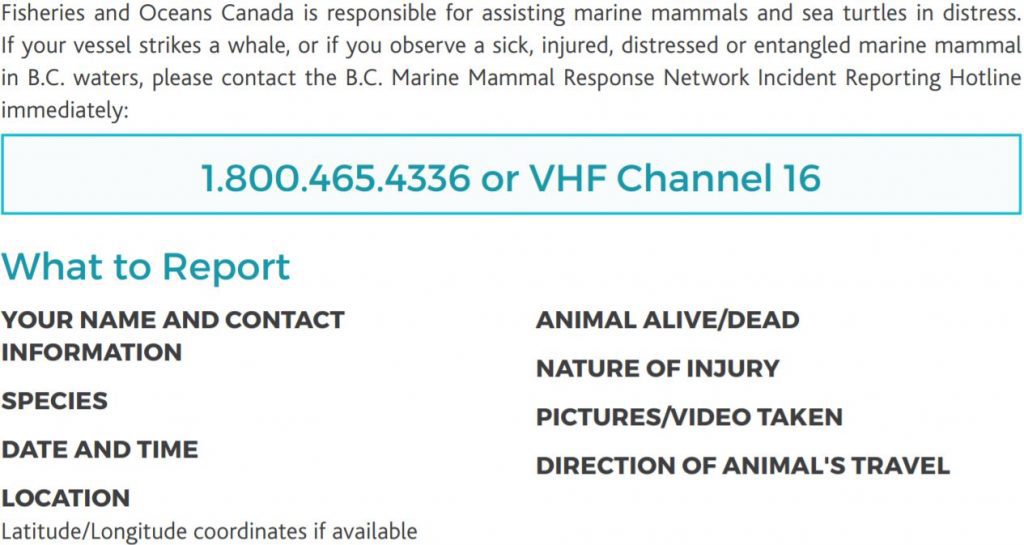
The International Maritime Organization (IMO) has revised guidelines (2023) for the Reduction of Underwater Radiated Noise from Shipping to address Adverse Impacts on Marine Life. View the updated guidelines [PDF].
Underwater Noise
Noise in the marine environment is a topic of increasing importance. The Port of Prince Rupert is working to understand noise in the region and find ways to mitigate potential sources of noise. This includes working with ship owners to find ways to reduce vessel noise.
The Port of Prince Rupert worked with Ocean Networks Canada in the deployment of a hydrophone in the port, recording underwater noise and creating baseline data that will be used to measure any increases that may result from increased vessel traffic or future development. PRPA also collects monthly underwater noise data using a portable Ocean Sonics hydrophone. This data will be used to establish a baseline of the ambient underwater noise in the harbour to better understand any increase in underwater noise levels with potential increased vessel traffic in the future. The hydrophone is also used to record and analyze targeted underwater noises such as vessel movements and construction on land.
The Port of Prince Rupert chaired a working group over several years to develop a new performance indicator in the Green Marine program for underwater noise. The working group brought together ports, ship owners, scientists, experts and environmental groups to lead to a better understanding of noise and implement mitigation measures. The development of this indicator shows the leadership by the marine shipping industry in collaboration with others on mitigating impacts to marine mammals.
The Port of Prince Rupert’s Green Wave program added criteria for underwater noise on January 1, 2017. The Port of Prince Rupert is leading the way as one of the first ports to implement incentives for quieter vessels through reduced harbour dues.
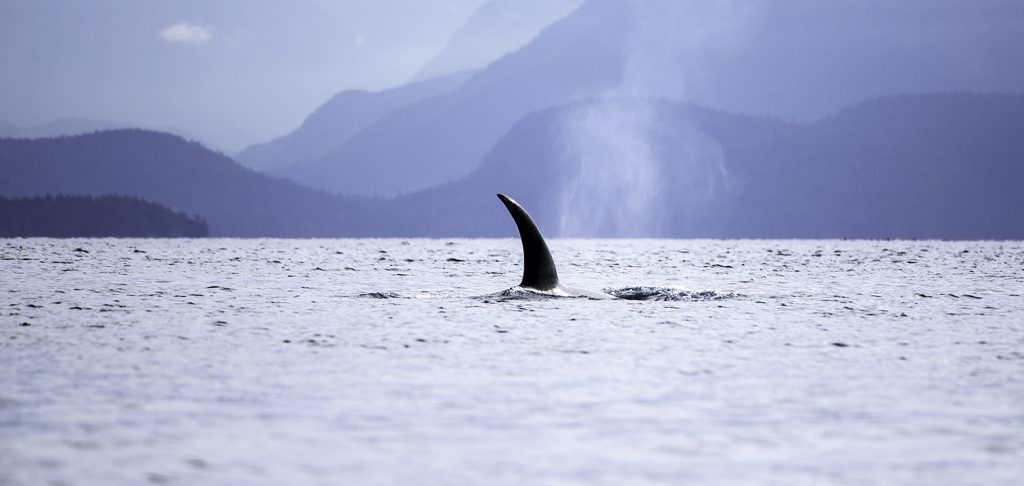
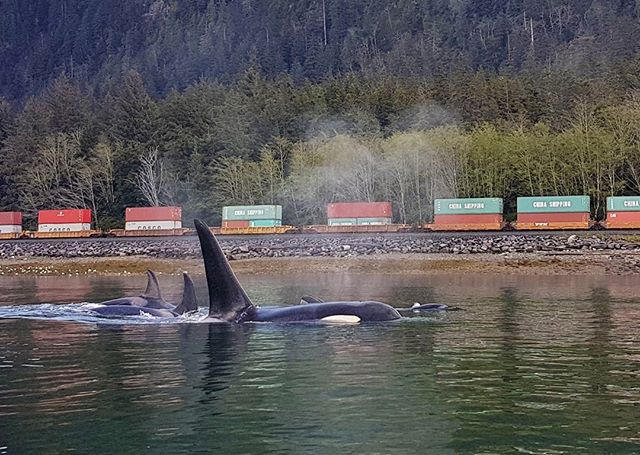
Science and Research
Understanding marine mammals in the Port of Prince Rupert region and along the coast of BC is vitally important. The Port of Prince Rupert, through the cooperation with partners in the Marine Mammal Program, is supporting continued research and science. Through collaboration with the Vancouver Aquarium, the Port helped deploy specialized equipment, C-Pods, to study harbour porpoise populations and activity in the Prince Rupert Harbour.
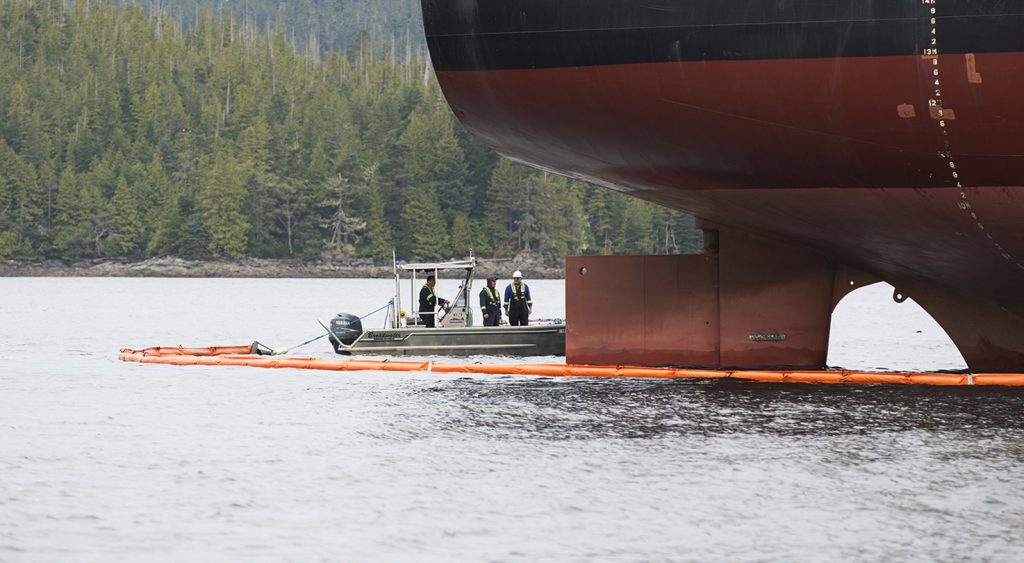
North Coast Cetacean Research Initiative.
In partnership with DP World and the federal Department of Fisheries and Oceans, the Port Authority established a funding collaboration to continue the North Coast Cetacean Research Initiative in Prince Rupert.
Beginning in 2014, the program involves research, community and school engagement, and helps to promote the Sightings Network in northern BC.
Scientific research projects include data collection on local harbour porpoises, a humpback whale catalogue and ongoing marine mammal surveys. An annual Whale Festival, hosted in partnership with the North Coast Ecology Centre, has engaged students and the community to bring awareness to ocean mammals and general knowledge of the coastal area.
Understanding marine mammals in the Port of Prince Rupert region and along the coast of BC is vitally important. The Prince Rupert Port Authority, through the cooperation of partners in the Marine Mammal Program, is supporting continued research and science. Through collaboration with the Vancouver Aquarium in particular, PRPA helped deploy specialized equipment, C-Pods, to study harbour porpoise populations and activity in the Prince Rupert Harbour. Download the North Coast Cetacean Research Initiative 2022-23 Report [PDF].
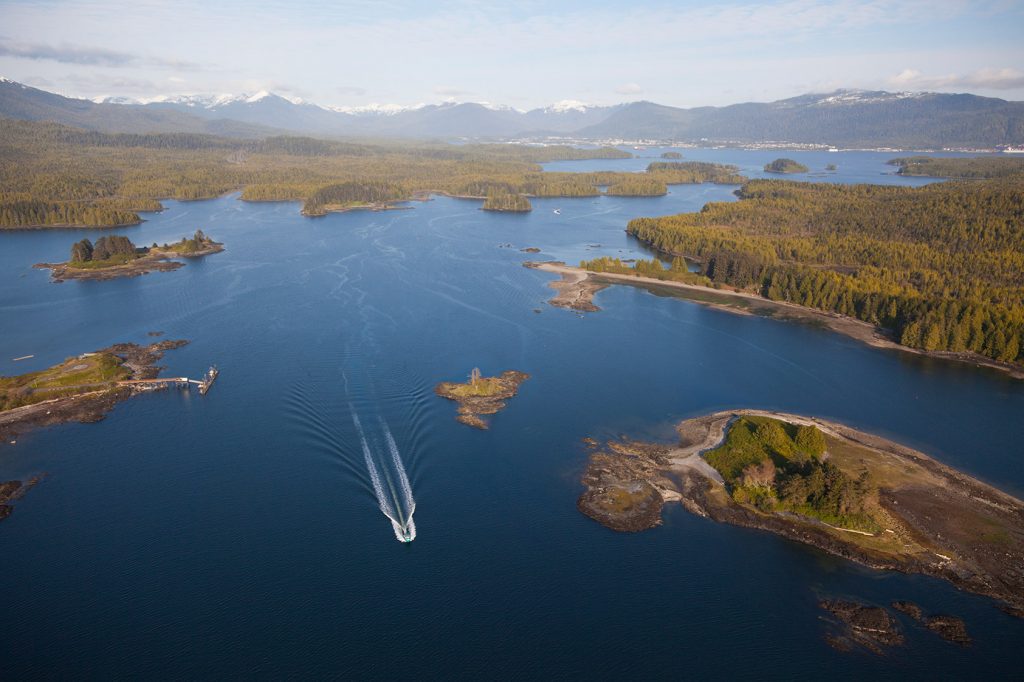
Whale Report Alert System
Through a collaboration between the Prince Rupert Port Authority, the Vancouver Fraser Port Authority, Oceanwise, the Department of Fisheries and Oceans, Transport Canada, BC Ferries, BC Coast Pilots, the Pacific Pilotage Authority, and others, the West Coast of Canada now has a common system in place based on the real-time sharing of whale sighting data available to mariners.
Sightings from observers are pushed out in real time to professional mariners, vessel captains, and others through a mobile app so that they are aware of any ocean mammals nearby and can take action to reduce or minimize disturbance. The BC Whale Report Alert System was activated in 2018.
Download the app for your mobile device.